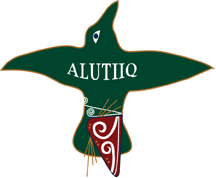|
 Port Graham Port Graham
Natural Resource Project:
A Tribal Initiative to Promote Collaborative Research and Restore Marine Invertebrates in Port Graham Bay
A Project Presented to the
Center for Cross-Cultural Studies
In Partial Fulfillment of the
Requirements for the Degree of
Master of Arts in Cross-Cultural Studies
By
Glenn A. Seaman
May 2012
Master's
Project
Port Graham Project Summary
Kachemak Bay is home to three Alaska Native Tribes, including the two Sugpiaq (Chugach Alutiiq) Native villages of Port Graham and Nanwalek. From Russian colonization in the late 1700s, subsequent fur trading, commercial mining and fishing industries, and the influence of the Russian Orthodox Church, the Sugpiaq gradually moved away from their traditional semi-nomadic way of life to establish the permanent villages of Nanwalek and Port Graham. These changes led to a regional concentration of resource harvests, a gradual deterioration of traditional management practices, and the gradual decline of some local marine resources.
In 2003, the Port Graham Tribal Council started to collaborate with Western researchers and managers working in the Kachemak Bay area to restore depressed stocks of locally important benthic marine invertebrates (e.g., clams, crabs, cockles, and chitons). The Port Graham-Nanwalek Wisdomkeeper Workshop was held in September 2003 to promote understanding and share information on local natural resource issues, and identify collaborative projects to address these issues. Implementation of the sixteen collaborative projects was left to the initiative of meeting participants.
The current project is a tribally driven community-based participatory research project to continue this collaboration initiative. It evaluated accomplishments since the 2003 Wisdomkeeper Workshop, identified gaps and research needs, and developed a strategy to both improve cross-cultural communications and establish long-term tribal-researcher partnerships to address tribal natural resource issues. It also developed and tested a systematic approach to promote two-way learning, establish relationships, and develop collaborative Tribal-Western research partnerships. This process started with an update and collaborative assessment of research projects since the 2003 Workshop.
This effort revealed that substantial progress was being made in (1) unraveling the cause of the decline of several benthic marine invertebrates (the "Bidarki Project"), (2) evaluating environmental contamination and benthic habitat mapping (mostly by one agency), and (3) in documenting traditional knowledge and tribal natural resource management practices (completed by the Port Graham Tribe). However, many of the Workshop participants did not follow-up, and many of the research topics related to resource assessments, marine science, and oceanography studies were not addressed.
A survey and follow-up interviews with researchers revealed that there were many factors contributing to the low rate of response, including lack of a coordinated follow-up, more pressing work priorities, lack of funding, inability to hire new staff, and breakdowns in communication. A Research Advisory Committee was established to work with the Tribe to identify information gaps, research needs and priorities, and develop a research strategy to restore marine invertebrates. This effort resulted in the identification of over a dozen collaborative projects that should be initiated in the next few years. Participants began to identify funding sources, identify specific actions to implement the recommendations, and develop partnerships.
The Port Graham Tribe and the project coordinator/facilitator (i.e., the graduate student) made a deliberative effort to build a project team of individuals and organizations with a sincere interest in building collaborative relationships with the Tribe and pursuing research of mutual concern. This systematic process was an effective approach in beginning to build relationships, understanding, mutual respect, and an overall commitment to work towards a common goal.
Both the Tribe and agencies began to understand the challenges each faces, appreciate the value of advanced planning for both researchers and tribes, and the need to build capacity and funding for the Tribe to participate in, support, and facilitate the development of tribal-researcher partnerships. This project should only be considered a start to address Port Graham's natural resource information and management needs. Substantial progress has been made, but the continued diligence of both the Tribe and researchers is needed to implement the recommendations and successfully address resource issues of mutual interest. The Tribe should continue to build on this initiative, including its role in coordination and facilitation, to more fully achieve its natural resource goals and objectives and support Tribal Natural Resource Management.
|